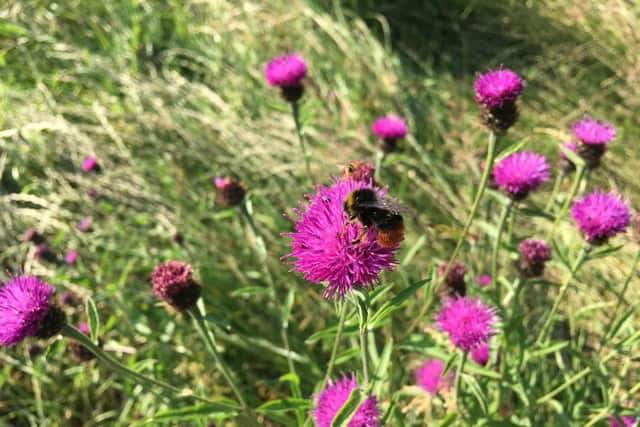Council buzzing after Rugby's Urban Meadows scheme picks up Bees' Needs award for supporting pollinators


Gladstone Green pocket park and Centenary Park in Newbold also picked up the award from the Department for Environment, Food and Rural Affairs (Defra).
The Bees’ Needs award, which celebrates bee-conservation efforts through active support for pollinating insects, was presented to 33 winners across the UK in 2019.
Advertisement
Hide AdAdvertisement
Hide AdThe judges were impressed by the rapid increase of biodiversity and bee-friendly wildflowers evident at the Urban Meadows sites, especially at Shakespeare Gardens, as well as the continuing success of the nectar-rich planting at Gladstone Green and Centenary Park.


Cllr Howard Roberts, Rugby Borough Council portfolio holder for environment and public realm, said: “It is great to see Rugby once again picking up national awards for the way we manage our open spaces.
“These awards are a tribute to the Rugby Borough Council’s cooperation with volunteers across the borough who support us with surveys, advice and regular maintenance, at these sites and elsewhere.
“Having declared a climate emergency it is important that we take every opportunity we can to support wildlife and maintain our open spaces in a way that will lock in as much carbon as possible.”
Advertisement
Hide AdAdvertisement
Hide AdRugby Borough Council’s Urban Meadows programme has seen the frequency of mowing reduced in certain areas; this allows naturally occurring wildflowers to bloom, which then creates extra nectar and pollen for the flower-visiting insects. In the case of Shakespeare Gardens, which the council understands to have been a natural meadow before the current housing development was built, the site is believed to be the only place in Warwickshire where one particular plant species is naturally occurring.
By removing nitrogen-rich grass cuttings soil quality is gradually reduced, allowing increased biodiversity each year the meadow is allowed to grow naturally.
For more information on Urban Meadows see www.rugby.gov.uk/urbanmeadows.